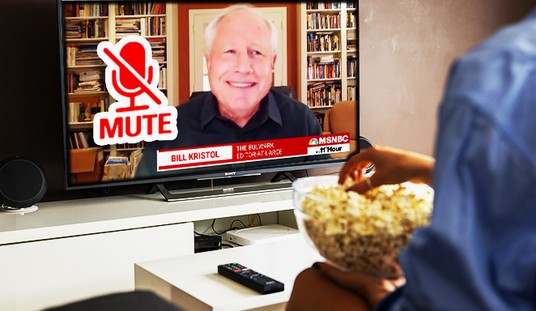Not to put a RedState reader on the spot, but these comments are rather predictable. Said one commenter to my original post on principle and political liability:
This same false argument was made about Reagan, you know it, I know it, the press knows it. It got him shut out by the GOP leadership in 1976…it got him elected in 1980.Never run from your principles, NEVER RUN from what you know is right.It just makes you a traitor to yourself and those who rely on you.Good people gravitate to persons that act in a principled manner, scary as that may seem to the political class.
Except this comment shows no sense of history.First, I never said that the candidates should abandon their principles. They should not. But they sure also shouldn’t scare the heck out of independent voters by fixating on their personal positions. For example, Santorum says his position on birth control is a personal one. As a legislator, he never opposed legislation relating to contraceptives. But why spend so much time focusing on his personal view when he makes clear he wouldn’t impose it on others? But back to Reagan. There is a well established myth about St. Reagan that he said what he meant and he meant what he said with unvarnished truth. Actually, that was Barry Goldwater and Goldwater lost. Badly.Reagan said what he meant and he meant what he said, but he did so smiling, laughing, and with a lot of fun. And he spoke in a way that was not off putting to independent voters. More so, back in November of 1979, the Reagan campaign was already in danger of being painted as the second coming of Barry Goldwater, so Reagan shook things up a bit.
From the Washington Post on November 29, 1979,
Like a troubled theatrical production that tries out new scenes and actors well away from Broadway, the Ronald Reagan presidential campaign is making big changes on the road.After the third departure or demotion of a major longtime Reagan adviser in as many months, the Reagan candidacy is losing some of its conservative California appearance and taking on the coloration of its pragmatic Washington campaign director, John P. Sears III.
If you know your history, you know that many of the men who left the Reagan campaign in 1980 remained powerful figures within the conservative movement and closely connected to Ronald Reagan. But on the campaign trail, Reagan could portray a “pragmatic” candidate. He never wavered from his principles. When he spoke of them, he spoke of them with a smile and jovial tone. But his focus was on fixing the country. When he spoke, he maintained his principles, but did not delve into them so starkly. Check this out from the June 16, 1980, Washington Post:
[S]enior members of Reagan’s camp have been sharply divided about how to present the candidate’s tax and budget policy. A more radical element in this group has pressed for a stark presentation: A Reagan administration would cut taxes 10 percent a year for three years, would “index” tax rates to inflation rates, would eliminate all federal inheritance taxes, would improve tax benefits for private industry, would increase defense spending and would promise lower inflation and smaller deficits.In practice, this is the line Reagan adopted in the primaries, though never quite so starkly. In one television commercial, this was Reagan’s message:”High tax rates don’t lower prices, they raise them. In the 1970s taxes grew faster than any other item in the household budget, including the price of energy. High tax rates discourage work and production. They add to the cost of living. If we make a deep cut in everyone’s tax rates, we’ll have lower prices, an increase in production, and a lot more peace of mind.”
Keep the principle. I wouldn’t trust any candidate who abandons his principle. But accept it can be a political liability if not handled properly.













Join the conversation as a VIP Member